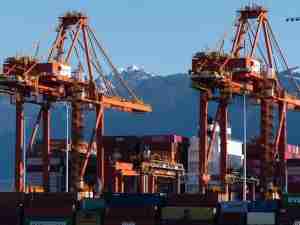Brexit May Mean 50 New U.K. Regulators to Replace EU Bodies
By: | Nov 07 2017 at 10:08 AM | International Trade
Brexit campaigners said leaving the European Union would cut red tape. But research by one opposition lawmaker suggests U.K. businesses may face the prospect of dealing with as many as 50 new regulators in 2019.
According to House of Commons statistics analyzed by the Labour Party’s Stephen Kinnock, a prominent pro-European campaigner, there are at least 50 EU bodies that the U.K. will need to leave and either replace or become associate members of when leaving the EU. Of those 50, there is no option for the U.K. to remain a member of 21.
“These figures make plain the scale of the institutional and organizational challenge that the government is going to face after Brexit,” Kinnock said Tuesday. “Unless we replicate the function of the 50 EU agencies and bodies that we are set to leave in March 2019, we risk seeing important consumer, environmental and other rights and protections disappear as they become unenforceable.”
One of David Cameron’s first acts after becoming Conservative prime minister in 2010 was to announce a “bonfire of the quangos,” dismantling the spider’s web of non-governmental regulatory bodies whose red tape made businesses wince. By merging or abolishing more than 200 of the bodies in 2010, the government aimed to save more than 500 million pounds ($650 million). There are no published figures on how much would need to be spent on establishing new quangos, though Kinnock said the cost could be “staggering.”
European Regulators
According to the pro-single market campaign group Open Britain, the European Medicines Agency has an annual budget of about 320 million euros ($370 million) and employs more than 900 staff. The European Aviation Safety Agency has a budget of 140 million euros and employs more than 800 people, while its maritime equivalent has a budget of 74 million euros and more than 200 staff.
Kinnock’s analysis shows that 20 of the EU’s current quangos are under direct jurisdiction of the European Court of Justice, something that has been ruled out by Theresa May’s government for any permanent post-Brexit arrangements.
Brexit Secretary David Davis told lawmakers Oct. 31 he expects Britain to remain part of the EU Open Skies Agreement, the air-safety body and the medicines agency during a transition period.
Parliament is set to debate the government’s flagship EU Withdrawal Bill again on Nov. 14, having delayed as it decides how to deal with more than 140 pages of amendments. That makes it less likely the U.K. will have established the necessary infrastructure to replicate the work of the quangos by March 2019, when it is set to leave the bloc.
The bill transposes European regulations into British law, so to replicate EU bodies the U.K. would be required to establish its own. Failing to do so might mean British businesses facing barriers on exports to the bloc. Kinnock has proposed an amendment mandating the government to create parallel U.K. institutions.
Another senior Labour lawmaker, Mary Creagh, said she’d received only vague answers Monday to questions she had asked government departments about how well they had prepared for transferring the agencies’ functions to the U.K.
“Leaving the EU with no deal would mean the end of Britain’s participation in EU agencies which are key to protecting workers, consumers and the environment,” Creagh said. “It is deeply concerning that ministers are failing to prepare to replace these agencies in the event of a no-deal Brexit. The government must secure a deal that keeps Britain in these vital EU agencies.”








